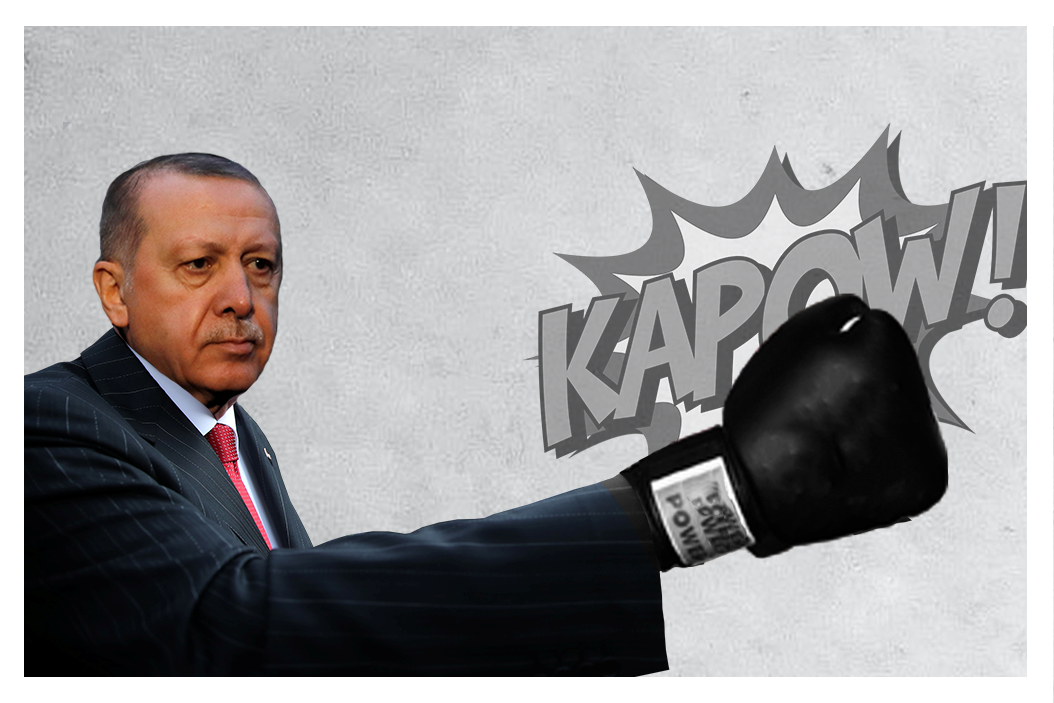Turkey's President Recep Tayyip Erdogan has made a lot of foreign governments really mad. Let's call the roll.
Europe. The EU is angry that Turkey is drilling for oil in the eastern Mediterranean, and NATO is furious that member Turkey has defied its protests to purchase S-400 missiles from Russia. Erdogan has repeatedly rejected pushback from EU leaders by calling them fascists and Islamophobes.
Just this week, Erdogan refused to express sympathy with France following the beheading of a French schoolteacher by an Islamist extremist, attacked Macron's own response to the murder, suggested the French president needed "some sort of mental treatment," and countered Macron's vow to crack down on Islamist radicals with calls for a boycott of French products.
US. Last weekend, Erdogan confirmed that Turkey has tested those Russian S-400 missiles, and dared the US to impose sanctions. The Turkish leader has few remaining friends in Washington, and if Joe Biden is elected president and Democrats win a Senate majority, US sanctions become much more likely. "You do not know who you are playing with," said Erdogan last Sunday.
Russia. Vladimir Putin likes to engage Turkey, if only to upset NATO leaders, but he doesn't like that Turkey actively opposes Russian proxies and allies in Syria, Libya, and the disputed enclave of Nagorno-Karabakh. Russia expressed its displeasure earlier this week by bombing a Syrian rebel camp in Idlib, the last stronghold of the Turkish-backed Syrian opposition on Turkey's border.
Saudi Arabia. Longtime rival Saudi Arabia is taking aim at Turkey too. Broad disagreements over the proper role of Islam in politics and specific issues like disputes over the murder in Istanbul of Saudi journalist Jamal Khashoggi have created plenty of bad blood between Erdogan and Saudi Crown Prince Mohammad bin Salman.
Aware that Turkey's economy is in bad shape, the Saudi government has made clear to its business community that it wants a total boycott of Turkish goods into the kingdom. The boycott remains unofficial, and latest economic statistics don't yet show a big impact on Saudi imports, but the push will likely continue, and Turkish companies will feel the heat.
China. Perhaps aware that Turkey will need at least one deep-pocketed friend, Erdogan has been uncharacteristically restrained in his criticism of China for forcing one million Turkic Muslim Uighurs into internment camps in China's Xinjiang region. But even here, Erdogan's government can't completely overlook such a large-scale crime against Muslims, and Turkey's foreign ministry expressed its "concerns" earlier this month.
Turkey's economy is hurting. Erdogan's economic policies are creating turmoil too, and Turkey's people are now suffering real economic pain. Inflation and unemployment are rising. The coronavirus has taken a toll. The currency has hit historic lows against the dollar.
Maybe Erdogan believes that picking fights with foreigners will appeal to national pride and divert public attention from these hardships. It fits the neo-Ottoman image he has worked to build of Turkey as a strong and independent actor on the world stage.
But a strong Turkey needs a strong economy, and the health of that economy depends on both trade and foreign funding. In a moment of economic crisis, new sanctions and boycotts aren't going to help.
The big questions: How much economic pain will Erdogan accept before he becomes less combative with those who have the power to hurt him? And how long before he pays a heavier political price at home?
